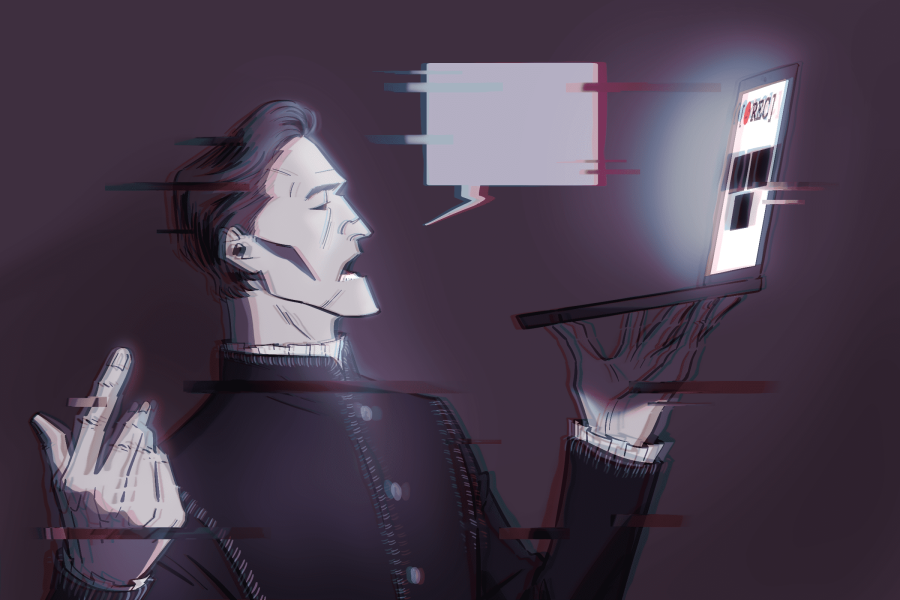I thought I used up all my wild theatre shenanigan currency. But I was wrong.
I have had my fair, weird share of theatre experiences. I taught an actual theatre class with friends for a month in high school while the administration desperately tried to find our ninth substitute teacher. As a counselor at a theatre camp, I once had to prevent the son of a local teacher from trying to pierce his own nose onstage after he saw my nose piercing. Another time, I ended up in a small Northern California puppetry workshop performing “You’ve Got a Friend in Me” in a dark room with 12 sweaty strangers. I’ve played an Oompa Loompa, a member of the Addams Family, a ditzy Victorian-era fiancé, and a gigantic blueberry body double. I’ve sung some songs, danced some dances, and accidentally thrown a fake beheaded velcro bird at my friend’s cello during a show. I’ve seen “Cats.” I thought I used up all my wild theatre shenanigan currency. But I was wrong. Because none of these experiences prepared me for the undeniable awkwardness of a UC San Diego virtual Zoom breakout room improv session.
As a double major who added theatre at the end of her second year, I am admittedly a little behind on my theatre major requirements. Consequently, for Spring Quarter, I enrolled in an acting class, a theatre history class, a playwriting class, and a sound design class. While virtual class isn’t ideal, it works relatively well for three out of the four classes. However, one class suffers noticeably more from this new format: acting class. As in, the class is usually based almost entirely on in-person participation with the frequent inclusion of duo or group performances as markers of progress. As in, a class solely designed for physical and emotional presence and interaction. As in, the class where you don’t just discuss live theatre, but where you are the live theatre.
While digital communication certainly isn’t new to the theatre world, completely remote theatre classes should be classified under an entirely separate realm. While vocal Skype lessons and the occasional recorded audition have been increasingly commonplace, they had end goals of live performances as a culmination of all the preparatory rehearsal work. Similarly, with a typical performing arts class, there is usually a final live performance as opposed to a written exam as a demonstration of improvement. Take any introductory theatre course here at UCSD, and you will likely be asked variations of the question, “What makes great theatre?” While there are plenty of different and beautiful responses to this question, you will undoubtedly hear responses akin to “It feels alive.” That feeling of liveliness, of something happening tangibly, currently, potently, is easily lost on a platform like Zoom, especially with the reality that there will be no live performance as the product of your rehearsal. There are lagging screens, lagging audio, spatial limitations, and clear barriers in connecting to both the people you’re performing with and the audience witnessing it. Instead of feeling limited by your commitment to a role, your rehearsal time, and integration of feedback, you instead feel limited by whatever space “home” is, your access to the Internet, and the quality of your laptop, if you have access to one.
This is not to critique the class itself, but rather to reflect upon some of the impacts of remote learning on the performing arts. Theatre faculty continue to be incredibly kind, supportive, and accommodating as they make the virtual transition right along with us. It’s important to note that while we as students are of course impacted, so are the professors who have had to completely restructure their courses and configure a significantly interactive learning modality for the given circumstances. And as these circumstances evolve, so do the classes and their delivery. We must work with what we have and find new ways to exist in our favorite art forms.
Although the onslaught of cancelled performances and digital transitions may feel destructive for the performing arts major, an unavoidable, I-guess-this-is-a-silver-lining aspect is the cementing of live, in-person theatre as an irreplaceable medium for human connection. Zoom does not feel the same, and quite honestly, makes me incredibly uncomfortable as I try to perform to tiny jolty boxes on my Dell computer. However, it has helped me reflect on the unique ethereal nature of theatre and why I’ve loved it since before I could retain memories. Technology will grow, and we may integrate it into the art form in various ways, but theatre will, at its core, hold power in its moment-to-moment essence.
Art courtesy of Yui Kita.














